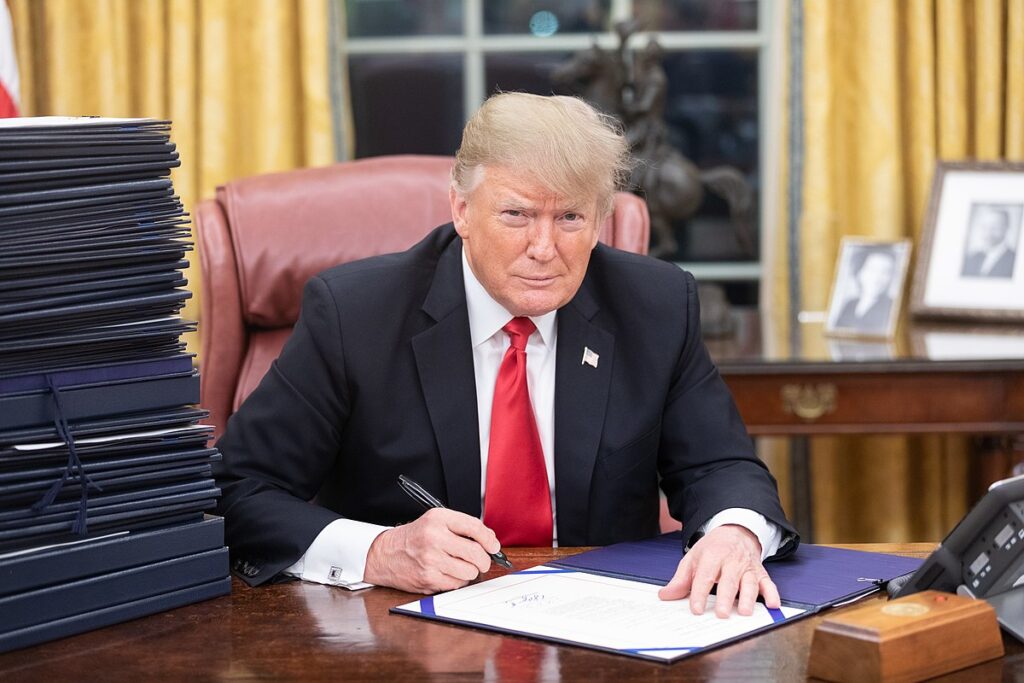
President Trump signing an executive order in the White House.
President Donald Trump on Thursday signed into law a bipartisan bill that repeals the Internal Revenue Service’s (IRS) “DeFi Broker Rule.” This marks a significant victory for the cryptocurrency industry.
The legislation, introduced by Representative Mike Carey (R-Ohio) and Senator Ted Cruz (R-Texas), cancels an IRS rule. This rule would have required decentralized crypto platforms—like DeFi exchanges and self-custody wallets—to report users’ transaction data. This would be similar to traditional financial brokers.
The new law not only repeals the rule but also prevents the IRS from issuing a similar regulation. This can only happen with new legislation from Congress.
Supporters of the bill hailed it as a necessary step to protect innovation and privacy in the blockchain space. They argued that the rule imposed impractical requirements on DeFi platforms. These platforms often lack the centralized structures needed to track user activity.
A misguided rule
“The DeFi Broker Rule needlessly hindered American innovation, infringed on the privacy of everyday Americans, and was set to overwhelm the IRS with an overflow of new filings. This is something it doesn’t have the infrastructure to handle during tax season,” said Rep. Carey.
“By repealing this misguided rule, President Trump and Congress have given the IRS an opportunity to return. The focus can go back to the duties and obligations it already owes to American taxpayers.”
The original rule was mandated under the 2021 Infrastructure Investment and Jobs Act. This act expanded tax reporting requirements to include digital assets. Its rollout faced immediate resistance from the crypto community. They raised concerns about feasibility, privacy, and potential overreach.
With this repeal, the U.S. sets a new precedent for crypto regulation. This emphasizes innovation and limited government interference in decentralized technologies.







